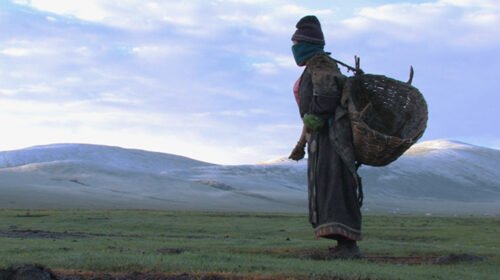Summer Pasture

Summer Pasture is the unique love story of Locho and Yama, nomadic herders in Tibet faced with a difficult choice as their way of life begins to give way to the modern world.
Awards & Recognition
Winner
2012 Peabody Awards - George Foster Peabody Award
Summer Pasture is the story of a young nomadic couple living with their infant daughter in the high grasslands of eastern Tibet. The film offers a rare window into a highly insular community seldom seen by outsiders. In the collective imagination of Tibet, nomads have traditionally occupied a dual role — romanticized as embodying the purest form of Tibetan identity, and mocked as being backwards, uncivilized, and inferior.
Locho (30) and his wife Yama (27) live in Zachukha, eastern Tibet – nicknamed "5-most" by Chinese for being the highest, coldest, poorest, largest, and most remote county in Sichuan Province, China. During the summer months, Locho and Yama make their home in a high valley pasture, more than 15,000 feet above sea level. Neither crops nor trees grow here, but the scrubby alpine grasses that do make ideal grazing for their herd of yaks and horses. Locho and Yama depend almost entirely on their animals for survival, just as their ancestors have for generations.
Summer is the busiest time for nomads, especially women, who are responsible for producing the family's primary domestic products. Each morning Yama rises hours before dawn to milk the yaks and spread yak dung, which is dried and used as fuel. The butter and cheese she processes from the milk are staples of the nomad diet, and stockpiled for consumption during the winter months.
Locho has been herding since he was six years old. When he was young, his mother died. He wanted to go to school, but his grandmother would not let him. From that point forward, he "followed the yak's tail." As the man of the tent, Locho is responsible for wrangling the yaks and making the six-hour trip into town to buy supplies.
Central to Locho and Yama's lives is their five-month old daughter. In the winter they'll take her to the lama at the local monastery to be named, but for now they call her Jiatomah, meaning "pale chubby baby."
Summer Pasture is, at its heart, a closely observed portrait of Locho and Yama's relationship, depicting moments of tenderness, annoyance, humor, and courage. Through the obstacles they face, one gains greater knowledge of the broad social changes that are taking hold of Tibet.